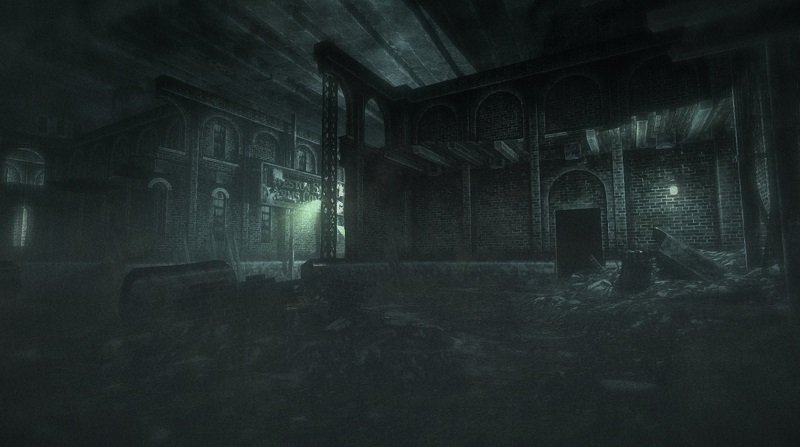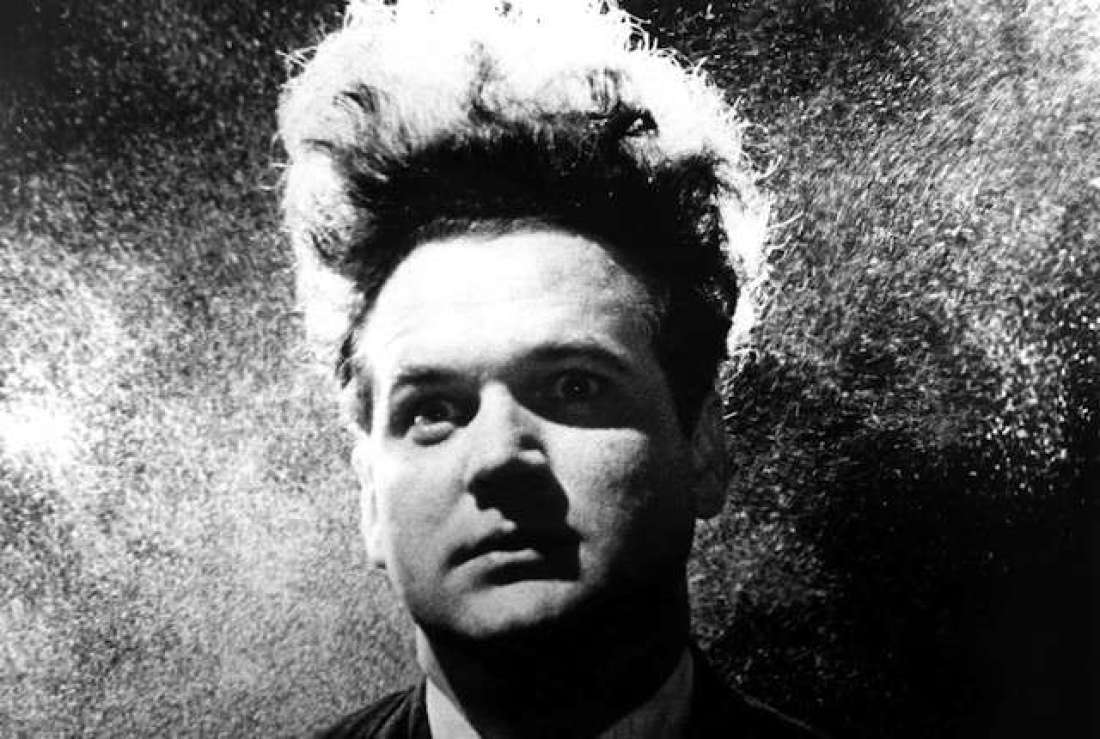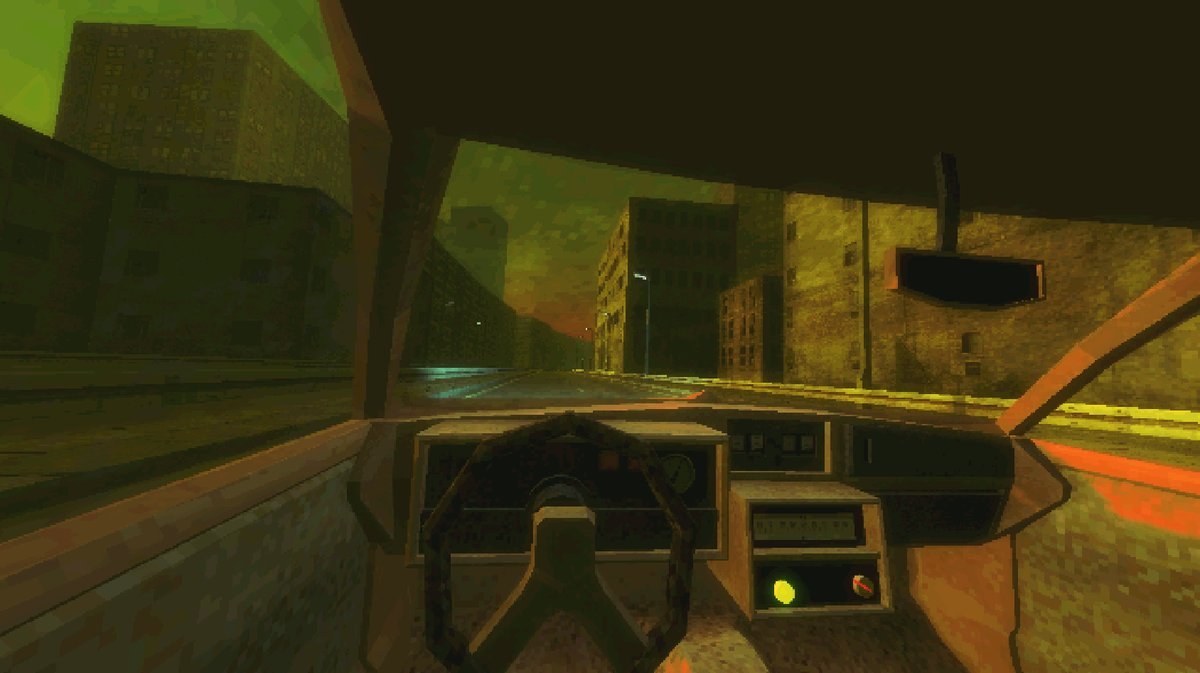
Jessica Harvey would set up her laptop on a coffee table, put in her headphones, and hermetically seal herself off from the world around her while she works on her Dadaist horror game, Tangiers. Sometimes she did so from a motel, and sometimes from the home of a friend or relative in front of their couches.
She emerged from her bubble hours later, spent some time filled with dread, slept, and woke up the next day to repeat the process all over again.
Headphones in. Laptop on. World shut out. Work. Terror. Sleep.
That was her life for nearly a year. She moved to the United States from the United Kingdom to be with her partner and had no other ties to the country she moved to. A mix of stresses resulting from the prolonged development of Tangiers and her coming out as transgender strained her marriage and eventually led to its collapse. She found herself suddenly with no home, and nothing to cushion the blow. Focusing on shipping Tangiers was how she sublimated a great deal of her fear and anxiety.
“That little bubble is where I gotta reside ’til things get better.”
She’s back on a sofa now in Utah, but with a semblance of stability. A tempestuous year of transience wherein she did not know where she would go next is over. Life has not been easy for her.
“Eh, we survive.” Her take on the whole situation was surprisingly stoic. “Things have been pretty crap for a good while. I’m in this for long run.”
Through it all, Jessica Harvey somehow found the strength to persevere.
Tangiers has been a work in progress since at least the summer of 2013 when the game’s Kickstarter launched. The Kickstarter promised stealth gameplay which “meets the darker avant-garde of the 20th century,” and included an estimated release of August 2014. Tangiers is not yet out, and Kickstarter updates from Harvey have lapsed, too.
Circumstances have been less than ideal, and yet Harvey does not regret her choices at all. Her eyes have remain fixed on the light at the end of the tunnel. She also recalled that life before discovering game design was not creatively fulfilling.
“Prior to getting in to game design, I was an impatient, lost soul more than anything,” Harvey recalled. “Crappy gas station job, a few aborted attempts at going to film school or trying to get into an art course and so on. Nothing came to much. The barrier to entry on the creative side of film is so absurdly high that my energies were just thoroughly wasted. It was only when I discovered indie games and started playing through them that I saw this as a viable outlet.”
Hotline Miami was the game that ultimately affirmed her decision to channel all of her creative energy into making a go of it as an independent game developer. She described Hotline Miami as a show by The Prodigy, but in game form; something raw and wild and powerful.
“That was so much the moment I felt, ‘yes, I am going to make things that channel this much power,’” she said.
Going against the conventional wisdom that you should not make games where you are the target audience, she set out to make a game to scratch an itch of hers that no other game was scratching: a game not just tinged with the surreal, but exploding with it; a game in which stilt-legged figures stumble through distorted city streets, where industrial dissonant synths scratch away at the senses, and where the broken landscape is as arresting as it is warped and off-putting.
“Frankly, I don’t really like horror all that much, at least not when it’s distilled down into ‘scary media’, and try to toe an almost tangential line between the genre and my own work. But for aesthetic and tone, for elements that are so regularly associated with horror – the weird, eerie, absurd and confrontational – this is material that rings very true to me and my experiences. I try to reflect life and society with authenticity, even if I do so within a very stylized form.”
Horror as confrontational media, according to Harvey, means provoking the audience or messing with them by restricting their knowledge of events. Sometimes that means shocking them with blood and gore to elicit an adverse response, and sometimes that means misleading the player about the nature of the world, the monsters and other inhabitants of it, and who are what the player character really is.
That’s what appeals to her: challenging, sometimes unpleasant media, rings true to her experiences. Horror is an off-kilter mirror that refracts and twists the veneer of safety and normalcy we construct as part of our realities, as she poetically describes it. Horror has a way of turning the tables on the audience and making them feel like outsiders.

Harvey says that Tangiers started out as a love letter to her artistic influences – William S. Burroughs, the works of David Lynch (particularly Eraserhead, Inland Empire, and season three of Twin Peaks, she noted), the band Cabaret Voltaire, and the avant-garde surrealism of the Dadaist art movement – but it has gradually morphed into something more intimate as she works through new life experiences.
“The change from third to first person, a tighter focus on the concept of ‘space’, the move from brutalism as a backdrop to a mechanism for critiquing modernity, the introduction of ‘survival’ as a primary narrative hook rather than the original passive journey. Underneath the core stealth gameplay, it was originally a tour of a strange world. But now? You get off the train and have arrived in a strange, hostile city with little memory of why or how you’re here. A city of people who want to use and consume you, people that you need to survive but have to tread very carefully around.”
Tangiers is not meant to be autobiographical, or a locus for her pain, but it certainly seems to have crystallized into that askew mirror Harvey described.
Still, for as intimate as Tangiers is, Harvey seems reluctant to have the audience see herself in the game. For starters, while she is the lead developer and credited on the game’s Kickstarter page as the primary creator, she acknowledges that game development is a group effort.
Secondly, she sees the form of auteurship whereby a work becomes a conversational bridge to the author as being potentially harmful.
“You externalize your esteem and apply a great deal of unhealthy weight upon how that is received and upon where you’re going. The world has been hard enough to navigate without those complexities or neuroses.” Harvey said. “…It’s like, the art is very much built from me, but it doesn’t exist as an extension or as a free moving, in-the-wild piece of me. It’s a bit of a fuzzy delineation, but to me it is: What’s a healthier outcome, to watch people play a game I’ve made and seeing them engage with my work, or to see them engaging with me?”
“Everything is fragile. There [are] still wolves in the forest,” she added.
Her wolves have taken many forms. Not only was she homeless for a year after her marriage failed, she also came out as transgender during the development of Tangiers, which she cites as one of the stressors on her failed marriage. Her dead name remains plastered across Tangiers’ Kickstarter page.
“It’s a grit teeth and deal with it thing, really. In an ideal world, I’d have just done something along the lines of quietly closing male personas and accounts before reappearing incognito, but being a vaguely public figure puts limits on that sort of autonomy. Not ideal, but what can you do?”
A famous web comic by KC Green depicts a kitchen engulfed in flames from the floor to the ceiling. A smiling dog sits at the kitchen table and sips coffee. “This is fine,” he proclaims. By the end of the comic his face has melted as if he just glimpsed the innards of the Ark of the Covenant. Harvey jokingly likens her life to that comic.
“Life hasn’t treated me great, but no regrets. I am, from a top-down perspective, pretty comfortable with working through choices, their consequences and everything associated with that, positive or negative.”
Her course has never felt like a mistake. Throughout the stress and hardship, working as an indie game developer been cathartic, and allowed Harvey to overcome a sense of existential frustration she had been mired in. In fact, it’s thanks to her work on another surrealist indie horror game, Paratopic, that she has scavenged a shred of stability as of late.
Paratopic uses the hallmarks of Lynchian nightmare logic, a lo-fi aesthetic, and frequent disorienting jump cuts to induce unease in the player. In some ways it is a test case for Tangiers. In a more pragmatic sense, it was also made to help Harvey and the rest of the developers of Arbitrary Metric pay their rents.
Thanks to its positive reception, Harvey’s circumstances have improved. Where nothing solidified from her attempts to do freelance game development contract work, Paratopic has been a balm to soothe some of her struggles. She is no longer reliant on friends throwing a few bucks her way every now and then to eat. It has helped her cover bills and keep a stable roof over her head.

So for all the stress, the pain, and the hardships tangentially related to, or caused by, her work, Harvey’s story is not one of buckling under pressure. She is not so easily defeated, even when it would be understandable for her to abandon ship and try to steer herself back onto a safer path. A feeling of obligation to fans and Kickstarter supporters drives her to some extent. She is certainly in tune with just how long Andalusian has kept everyone waiting. In a warped way, she likes to think of her tribulations as heroically self-destructive gestures towards delivering on her Kickstarter obligations.
That is not where she draws strength from, however.
Tangiers is the manifestation of Harvey’s creativity. It is something personal and intimate and born of passion and myriad influences she had not seen before in the games she played. It is a dream project.
That, too, is not why she moves forward.
Her strength and her sense of perseverance are born from necessity and the desire to author her own a story. The story she wants for herself is something wholly different from the story that will be told within Tangiers, though it will ultimately influence Tangiers.
What Harvey wants is her own story of triumph over monumental adversity.
“I believe strongly in those former two points and they legitimize the journey in my mind, but the reality is that there’s no easy or viable alternative. On top of this, it’s the only thread of continuity I have through the past half decade of my life. I’ve gone through a thoroughly miserable, horrible time of things during this period, aye? And through that time, Tangiers has been the one thing that I’ve been working toward. Without it, I end up with a big destructive blot on my history,” Harvey declared.
“But with it, once I’ve seen things through, I get my own overcoming the odds narrative that rationalizes everything.”
 GameDaily.biz © 2025 | All Rights Reserved.
GameDaily.biz © 2025 | All Rights Reserved.